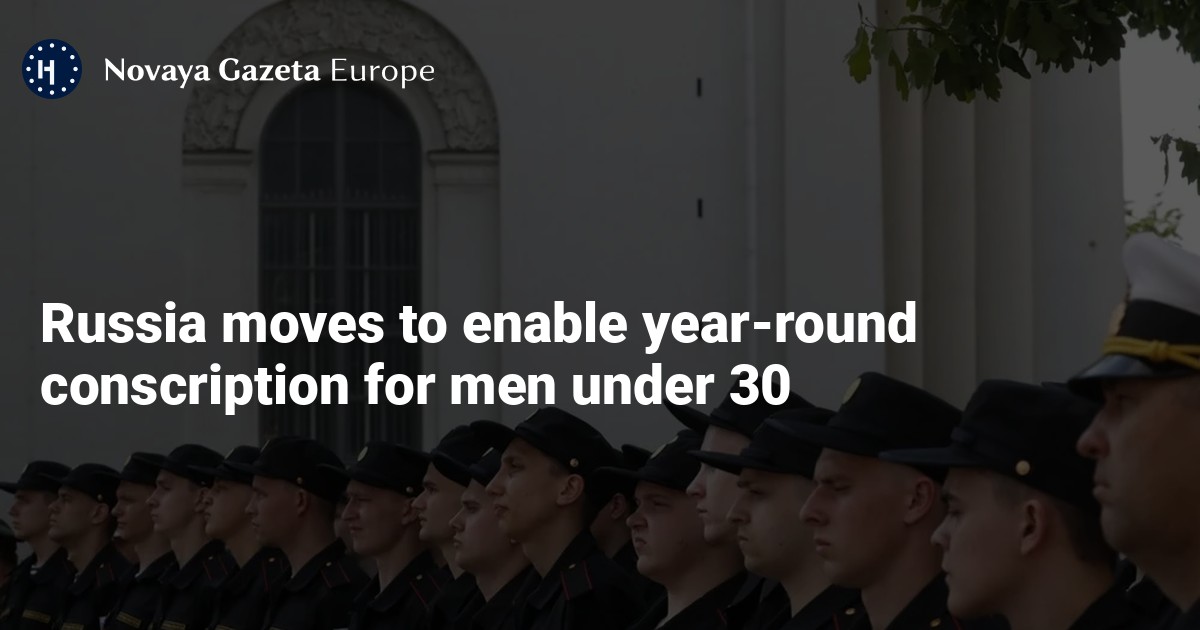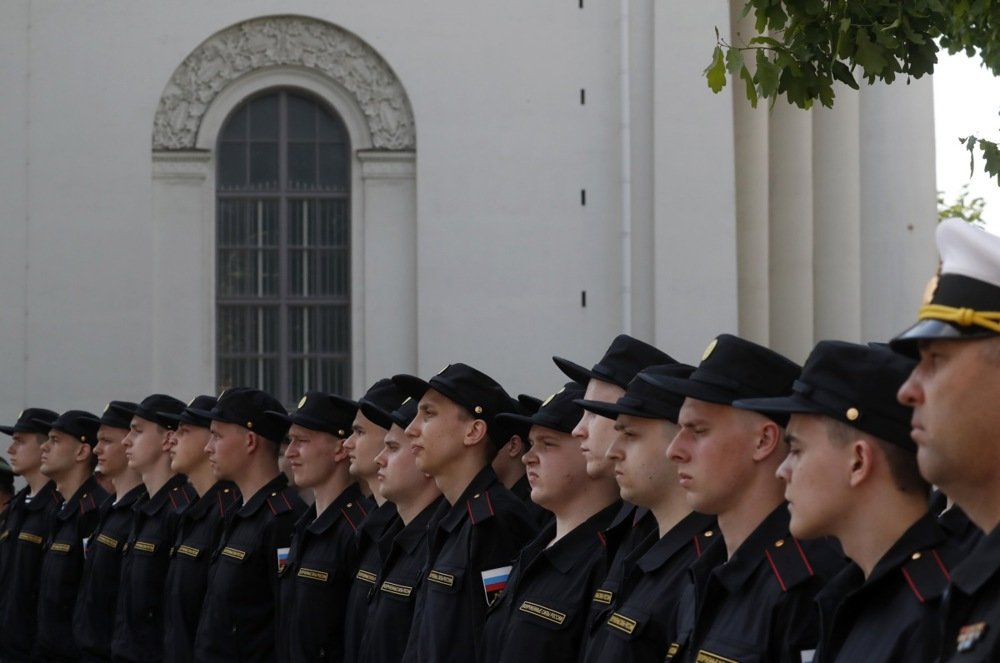




Young Russian marine recruits attend a departure ceremony to join the army in front of the Trinity Cathedral in St. Petersburg, Russia, 23 May 2023. Photo: EPA/ANATOLY MALTSEV
A new piece of legislation has been proposed by the Russian lower house of parliament that, if passed, would expand the country’s military conscription period to a year-round basis, Russian state-run news agency TASS reported on Tuesday.
All men in Russia aged 18–30 are required to perform a year-long period of military service, with call-ups currently taking place during two periods spanning approximately half the year: from 1 April to 15 July, and from 1 October to 31 December.
According to the legislation proposed by the Russian State Duma, those periods would remain the only times when conscripts could be “sent” to military service, but supplementary conscription processes, such as appearing for medical examinations and psychological evaluation, would be held year-round.
Despite Vladimir Putin vowing that inexperienced conscripts would not take part in combat operations, there have been numerous reports of conscripts being sent into combat or coerced into signing contracts with the Russian Defence Ministry.
Human rights groups argue the bill would effectively codify what has already become standard practice: authorities routinely summon non-reservists to enlistment offices outside the official draft periods, citing the need to “clarify personal data” before sending them for medical examinations.
The changes are designed to distribute the workload at military recruitment stations more evenly, the bill’s sponsor Andrey Kartapolov, chair of the State Duma Defence Committee, told RBC, a state-affiliated business outlet.
If passed, the legislation would ensure that draft offices no longer have “such storming and rushing every six months” and can work more “calmly” year-round, Kartapolov said.
Kartapolov proposed the legislation with the Defence Committee’s deputy chairman, Andrey Krasov. Due to the seniority of these two lawmakers, the legislation is very likely to be adopted, according to Faridaily, a Telegram news channel founded by ex-BBC Russian journalist Farida Rustamova.
As the State Duma begins its summer recess on Thursday, the bill will not be considered until the autumn. If approved, the law would come into force on 1 January 2026.
